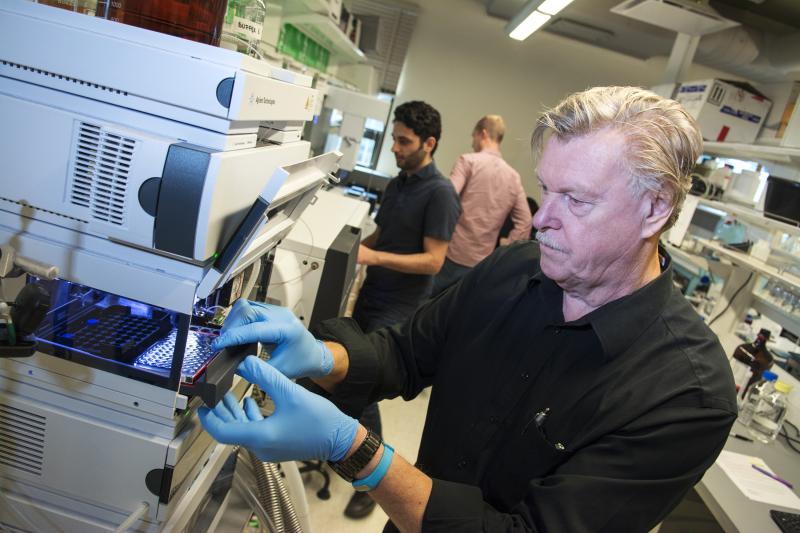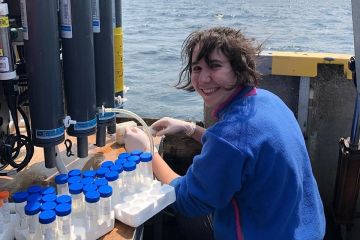Just one drop: UVic-based technology set to revolutionize standard blood tests
- Erin King

A small six-person team of scientists and lab technicians are leading a global revolution in medical diagnostics—from right here, in Victoria.
Healthy or not, all of us at some time have been subjected to one of the most common forms of medial diagnostics—the dreaded blood test. But what if there was a way to avoid this uncomfortable process?
A team of researchers based at UVic is poised to revolutionize medical diagnostics with new, less-invasive methods that can be applied to a variety of diseases and wellness monitoring.
With the current system for disease diagnosis, each biomarker test—which refers to measurements of specific proteins in the blood associated with specific diseases—requires large, separate blood draws. Now, UVic biochemists Terry Pearson and Leigh Anderson, along with their start-up company SISCAPA Assay Technologies Inc., have developed a technique that can measure more than 25 different biomarkers at once in just one drop of dried blood.
“This is a far more efficient and economical method for the health care system, and has the added benefit of being far less invasive for the patient,” says Pearson.
SISCAPA’s core technology has already been adopted by the Mayo Clinic and ARUP Labs in the US—and the company is exploring similar opportunities in Canada, China and Europe.
Individuals can prepare their dried blood spots at home and accumulate samples—eventually sending them to a lab where doctors or scientists can monitor the patient’s baseline levels of various biomarkers over time.
The diagnostic potential of this new technology is limitless, says Pearson. For example, studies show that knowing the normal levels of a biomarker for ovarian cancer in a woman’s blood is an effective tool for monitoring her health. But long-term monitoring is even better.
“Increases of the ovarian cancer biomarker over her baseline, not simply a comparison with the average levels in a population of women, will reveal changes—a flag that cancer might be present—much earlier on,” he says. “The same can be said for long-term monitoring of many other diseases as well.”
Not only does longitudinal testing allow earlier detection and monitoring of diseases such as cancer, diabetes and cardiovascular disease, it also allows for monitoring of personal wellness. In fact, SISCAPA technology was used with Brazilian elite athletes during the 2015 PanAm Games to monitor a large set of biomarkers associated with training, stress and performance—work that will continue during the 2016 summer Olympics. Pearson says the technology will also allow individuals to monitor how a change in diet affects their overall health.
SISCAPA recently won the Human Proteome Organization’s Science and Technology Award, which recognizes the team’s efforts in making the technology widely available. That’s not bad for a small start-up company that’s less than three years old.
SISCAPA was developed at UVic over 13 years in partnership with Anderson in Washington DC and the company was officially formed in 2013. Undergraduate and graduate students were involved in much of the ongoing technology development, design and automation.
“Three of our six-person team are UVic alumni who started with us as students,” says Pearson “They’re the ones who will ultimately usher in this exciting new era in medical diagnostics.”
The SISCAPA technology was developed from research supported by the Canary Foundation (California), the National Cancer Institute (US), the natural Sciences and Engineering Research Council (Canada) and the Canadian Institutes of Health Research.
At three years old, the SISCAPA lab is still relatively small—but it’s not alone. It’s just one of more than 75 start-up companies emerging from UVic that have helped to push high-technology ahead of tourism as one of Greater Victoria’s primary industries.
Photos
In this story
Keywords: chemistry, cancer, disease, biomedical, health, blood, proteomics, industry partnerships, research





